-
Everything You Need to Know About Dental Fillings
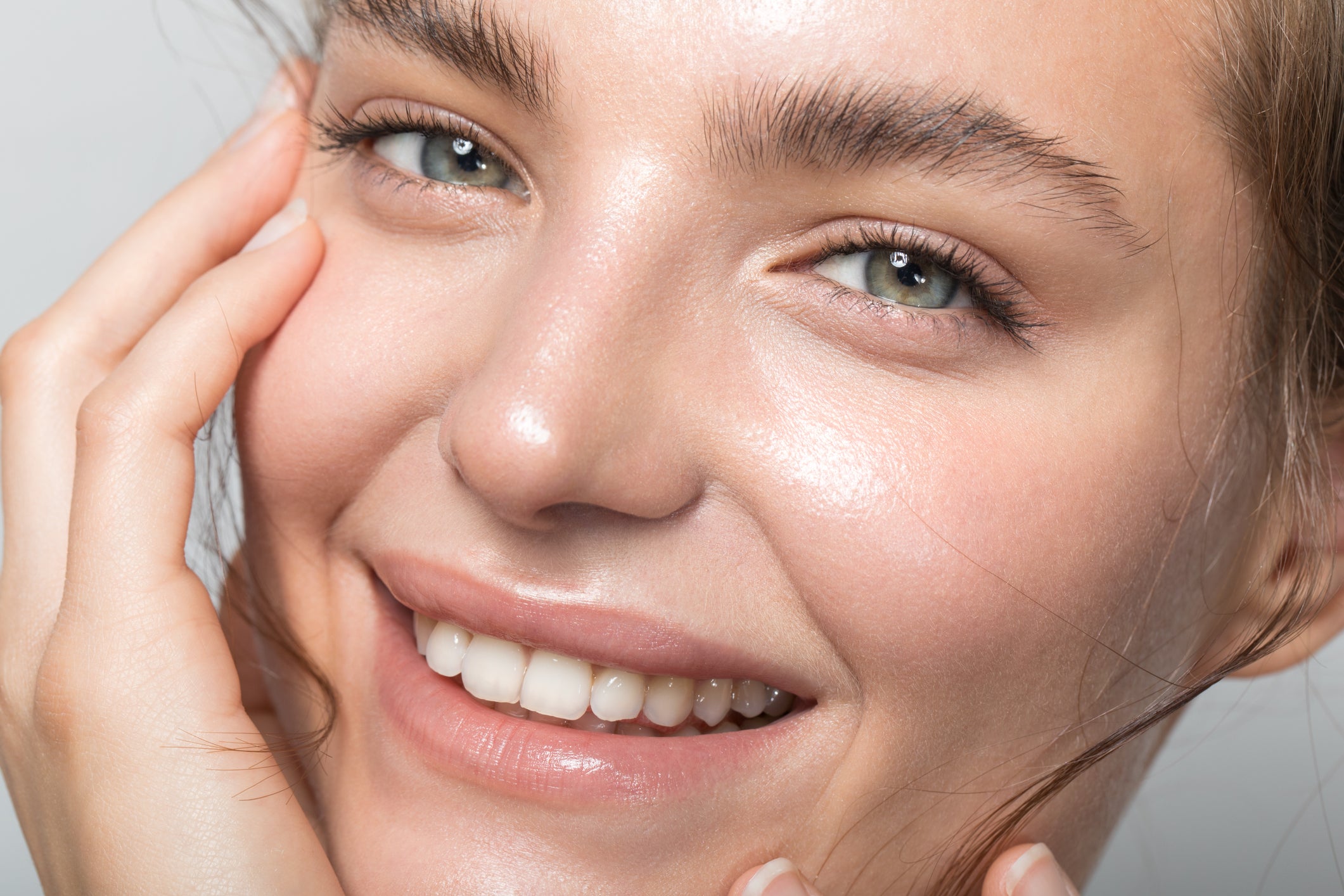
Cavities and tooth decay are common oral health problems. If left untreated, decay can spread and destroy the entire tooth. While it’s best to prevent cavities in the first place, your dentist can save a decaying tooth by giving you a filling. Here’s everything you need to know about dental fillings.
The Process of Getting a Filling
To ensure a painless procedure, your dentist first numbs the tooth and surrounding tissue using a local anesthetic. Next, the decayed portion of the tooth is removed with a drill or laser. Then, the tooth cavity is cleaned to remove residual bacteria and prepare it for the filling. If the decay reaches the tooth root, a liner made of composite resin, glass ionomer, or another material may be applied to protect the nerve.
Once the tooth is prepped, it’s time to add the filling. This part of the process varies depending on the filling material being used. For example, with tooth-colored composite resin, the material is added in layers, cured with a special light, shaped, and polished for a smooth, natural-looking finished product.
Types of Dental Filling Materials
You have several filling materials to choose from. The right fit for you may depend on the location and extent of your cavity, cost differences, insurance coverage, and your dentist’s recommendations. Here are the top options:
- Amalgam fillings: Made of mercury, silver, zinc, and other metals, amalgam is a strong, inexpensive filling. The presence of mercury scares some patients, but com declares that amalgam fillings have never been shown to cause health problems. The biggest drawback is amalgam’s metallic color, which makes it less desirable for filling cavities near the front of the mouth.
- Tooth-colored composite resin fillings: This option is extremely popular because the filling matches your natural teeth. Chemical bonding provides excellent structural support for composite resin fillings. The downside is that this material doesn’t last as long as amalgam fillings, and it’s also more expensive.
- Tooth-colored ceramic fillings: Ceramic fillings tend to last longer than composite resin, and they are also more stain-resistant. However, ceramic is relatively brittle, so some healthy tooth material may need to be shaved away to make the filling larger and more durable. Ceramic is also among the most costly dental filling materials.
- Glass ionomer fillings: This material, made of acrylic and a special type of glass, is often used as a liner to protect tooth nerves when a cavity is located below the gum line. These unique fillings release fluoride over time, which helps to prevent future tooth decay. They last about as long as resin composite fillings and are comparable in cost.
If you think you have tooth decay, don’t ignore the problem. Filling a small cavity is always easier and more affordable than waiting for the decay to spread. If you have any tooth pain, sensitivity, or discoloration, call (212) 826-2322 or contact Park 56 Dental online to schedule a checkup at our dentist office in New York City.
-
Why You Should Consider Dental Implants

Most people take their teeth for granted. However, if you lose a tooth to extensive decay or a traumatic injury, the gap in your smile may be all too apparent. Fortunately, you have options for replacing your lost tooth, including bridges, dentures, and dental implants. Here are the top reasons to restore your confident smile with fixed implants.
- Prevent your teeth from shifting: When you lose one tooth, the surrounding teeth tend to shift and fill in the space. This can throw off your bite and lead to uneven spacing or overcrowding. Having an implant placed now helps to maintain the position of your teeth so you can avoid these complications.
- Preserve your jawbone: Other tooth replacement solutions, including bridges and non-implant-supported dentures, may eventually weaken your jawbone. However, implants feature an artificial tooth root that grows into the bone, stimulating it and preventing deterioration.
- Maintain your appearance: If you’re missing multiple teeth, a significant portion of your jawbone could begin to deteriorate. Eventually, your jaw, cheeks, and lips may start to sink inward, making you look years older than you really are. The stimulation provided by dental implants keeps your jawbone healthy, so your face looks full and youthful for years to come.
- Avoid the hassle of wearing dentures: Implants are more natural-looking than dentures. As a permanent solution, implants also let you avoid the hassle and embarrassment of removing dentures to eat or sleep. You never have to worry about your implants falling out, either, which enhances your comfort and confidence. You can even brush and floss implants with the rest of your teeth, unlike dentures, which require special soaking and cleaning.
- Preserve the structural integrity of your remaining teeth: Bridges involve shaving down the teeth on either side of the gap and placing crowns to support the artificial tooth. If these teeth are healthy, you may hesitate to damage their structural integrity. Implants are self-supporting, so the surrounding teeth remain untouched.
- Enjoy a long-lasting solution: Implants are capped with custom-made porcelain crowns designed to look, feel, and function exactly like a natural tooth. These artificial crowns are known to last for decades with proper care, allowing you to smile confidently for many years to come.
- Suitable for more and more candidates: You may have heard that not everyone is a good candidate for implants. However, dental restoration technology has evolved tremendously in the past 10 years. This means, even if you didn’t qualify for implants in the past, you might want to speak with your dentist about the latest options available.
The dentists at Park 56 Dental can help you compare all your tooth-restoration options, including dental implants in NYC. If you have a gap in your smile or are otherwise dissatisfied with the condition of your teeth, give us a call at (212) 826-2322 or contact us online to schedule a consultation. We would be happy to answer any questions you have about cosmetic, restorative, and general dentistry.
-
A Step-by-Step Guide for Proper Flossing
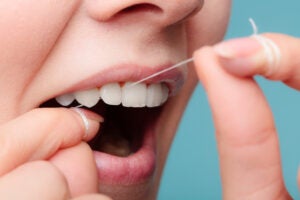
The benefits of flossing include superior plaque removal, healthier gums, and a lower chance of cavities. Perhaps you intend to add this good habit to your oral care routine, but you’re not sure how to floss. Follow this step-by-step guide for the best results.
How to Floss Your Teeth
- Break off 18 inches of floss from the spool and wrap the ends around your middle fingers.
- Grasp the floss with your thumb and forefinger to secure it better and prevent squeezing your middle fingers.
- Guide the floss between two teeth at a time, being careful not to snap it against your gums, as this could cause trauma to the soft tissue.
- Glide the floss up and down, arching it into a c-shape so it rubs against one tooth and then the other. Extend the floss down below the gum line to remove plaque buildup here as well.
- Gently remove the floss from between your teeth.
- Repeat this process throughout your entire mouth. Be sure to floss behind your back molars as well.
- Every few teeth, wipe the collected debris onto a facial tissue and shift to a clean section of floss.
- Dispose of the used piece of floss in a trash can, not the toilet.
If your gums bleed when you floss, this could be a sign of gum disease. Flossing strengthens your gums, so keep up the habit, and the bleeding should subside after about two weeks.
Flossing with Braces
Because food and plaque are more likely to become trapped under bands and wires, flossing when you have braces is very important. Special stiff floss makes it easier to thread under your braces so you can pass it between your teeth. You may also opt for a flossing alternative to complete the task more quickly.
Alternatives to Traditional Floss
If you dread flossing because you have braces, or you simply don’t feel coordinated enough to do it properly, try an alternative to traditional dental floss. Here are your options:
- Dental floss picks are the closest equivalent to regular floss. They consist of a bit of floss stretched between a u-shaped piece of plastic. A small handle lets you comfortably hold the floss pick without having to wrap floss around your fingers.
- Interdental picks feature short rubber tines attached to a small handle. The increased size of the flossing material makes it easier to clean more thoroughly between larger gaps or areas with receding gums.
- A water flosser is a mechanical device that sprays a fine jet of water between your teeth to remove food particles and plaque quickly and easily. It’s a great choice for people who hate the feeling of floss scraping against their teeth.
Talk to your dentist about which flossing product may be best for you.
Ready to discuss your oral care routine? Have a concern about flossing every day? Please contact Park 56 Dental at (212) 826-2322 for advice from a leading NYC dentist.
-
How Sugar Affects Your Teeth

Everyone knows sugar is bad for your oral health, but few people know why. Once you understand how sugar affects your teeth, you may be less tempted to indulge in Halloween candy and other sweets during the holidays.
How Cavities Form
Your mouth is home to hundreds of different types of bacteria. Some are beneficial, but others cause cavities. When you eat sweets, some of the sugar lingers on your teeth. Harmful bacteria eat these leftovers and leave acids and plaque behind.
Without proper oral hygiene, the accumulation of acid lowers the pH balance in your mouth. This causes demineralization, or the removal of minerals from the hard outer surface of your teeth known as enamel. As your enamel erodes, holes form in your teeth. The damage eventually progresses deeper and deeper until it causes pain and tooth loss.
Reducing the Effects of Sugar on Your Teeth
A constant battle is raging in your mouth between bacteria and tooth enamel. Fortunately, you have an effective weapon on your side—saliva. In addition to breaking down food as it enters your digestive system, saliva helps to remineralize your teeth with calcium, phosphates, and other minerals.
It’s possible to fill cavities and restore your smile, but it’s best to avoid tooth decay in the first place. Here’s how to give your saliva a fighting chance against the onslaught of sugars and acids in your mouth:
- Limit your sugar intake by eating less Halloween candy and other sweets during the upcoming holiday season.
- Brush your teeth after eating sugary food. If that’s not possible, chew sugarless gum or swish with water to wash away any lingering sugar in your mouth.
- Satisfy your sweet tooth with xylitol, a natural sugar alcohol that has the same sweetness as sugar but is not a viable food source for bacteria.
- Limit between-meal snacks to give your saliva a chance to wash away acid and repair your teeth before the next meal.
- Don’t eat or drink anything sugary between brushing your teeth and going to bed. Likewise, never send your child to bed with juice, which introduces sugar to the mouth just when saliva flow decreases during sleep.
- Consider dental sealants, a product that covers the chewing surfaces of a child’s molars to protect this rough, pitted area from bacteria.
- Seek out fluoride. This mineral helps prevent tooth decay and can even reverse cavities in their early stages. Drink fluoridated water, brush with fluoride toothpaste, and ask about fluoride treatments at your next dentist visit.
The best way to avoid cavities is to combine at-home oral hygiene tips with routine teeth cleanings at Park 56 Dental. Our experienced dental team will check on the condition of your smile, clean and polish your teeth, and address any cavities that are developing before they grow any larger. To schedule your next appointment, please contact Park 56 Dental online or call our NYC dentist today at (212) 826-2322.
-
How You Can Get the Smile You Want with Veneers
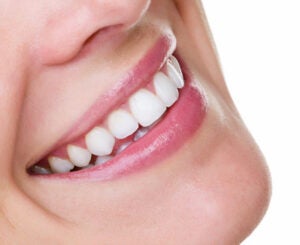
Your smile is one of the first things people notice about you. If you have flawed teeth, you may be all too aware of this, smiling with closed lips or covering your mouth with your hand to hide them. What if you could smile confidently? With veneers, you can!
A veneer is a thin, custom-made shell that bonds to the front of your tooth. It’s made of tooth-colored material, such as porcelain, which is carefully matched to your existing teeth for a completely natural finish. Here’s how you can get the smile you want with veneers.
Straighten Crooked Teeth
Veneers aren’t meant to replace orthodontic treatment, but if you have crooked teeth, this could be an option. An oral exam and digital X-rays are the best way to determine if braces or veneers will improve your smile most effectively over the long term.
Fill in the Gaps
You want your teeth to sit snugly side-by-side. If there are gaps between some of them, your mouth may appear neglected and be more vulnerable to cavities and gum disease. You could bring your teeth together manually with braces or a retainer, but if the gaps are caused by small teeth rather than poor alignment, veneers could be the superior solution.
Correct Discoloration
Have you tried to whiten your discolored teeth without success? While professional in-office teeth whitening can remove surface stains, it can’t touch deep stains or discoloration caused by traumatic tooth injury. Fortunately, veneers can! As long as your teeth are healthy, you can cover them with custom-made veneers in a sparkling shade of white.
Hide Imperfections
Is one of your front teeth longer than the other? Are you self-conscious about a snaggletooth? Maybe one or two of your teeth are smaller than the rest. Whether uneven, worn, or oddly shaped, veneers can almost certainly hide your imperfect teeth.
Smooth out Chipped Teeth
Tooth enamel is the hardest material in the body, but it’s not impervious to chipping. Veneers restore your appearance by smoothing out chips, making them invisible. Anyone who sees you smile after having this restoration work performed will only notice beautiful, healthy-looking teeth.
The Veneer Procedure
When you set an appointment at Park 56 Dental to discuss your cosmetic dentistry questions, we’ll show you what veneers can do. If you decide to move forward, we’ll begin the restoration process by taking impressions of your teeth. Custom veneers are made based on these impressions for a precise fit.
On the day of your fitting, the dentist will prepare your teeth by shaving them down slightly so the veneers align with your natural teeth. Next, the veneers are attached using dental cement. A curing laser speeds up the drying process and ensures a permanent bond. After a final cleaning and polishing, you’ll be left with the beautiful smile you’ve always wanted!
To learn more about hiding flawed teeth with veneers, or to schedule a consultation with our NYC dentist, please contact Park 56 Dental at (212) 826-2322.
-
How Poor Dental Hygiene Affects Your Overall Health
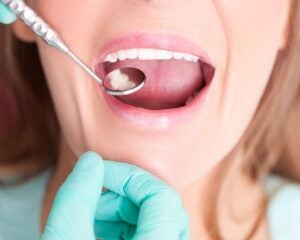
You probably know that if you don’t take good care of your teeth and gums, you increase your risk for cavities, gum disease, and bad breath. But are you aware that oral health can affect the rest of your body? Connections have been discovered between decreasing oral health and many seemingly unrelated diseases and conditions. Learn more about this connection here, as well as how to maintain a healthy mouth and body.
Heart Disease
When your gums are damaged and infected because of gum disease, oral bacteria can enter your bloodstream directly through this soft tissue. This allows bacteria to travel to your heart, where clots can form as a result. A condition called endocarditis, or inflammation of the inner lining of the heart, may also develop.
Chronic gum inflammation also emits chemicals that can cause atherosclerosis, or the clogging and hardening of artery walls. This health condition blocks blood flow, increasing the risk of heart attack and stroke.
Dementia
The harmful bacteria that grow when you have gum disease don’t only travel to your heart—they also enter the brain, where they kill brain cells and lead to memory loss. This may increase the chance of developing dementia or Alzheimer’s disease.
Respiratory Infections
It’s possible to inhale oral bacteria that form because of gum disease. Once in the lungs, the bacteria can cause infections, pneumonia, acute bronchitis, and even chronic obstructive pulmonary disease (COPD).
Diabetes
Gum disease and diabetes are a dangerous combination. If you are diabetic, you are more susceptible to infections, including gum disease. Then, if you have gum disease, this heightens your risk for high blood sugar, which can lead to diabetes or worsen your existing symptoms. And if you have both conditions at once, you have a higher chance of developing kidney disease.
Rheumatoid Arthritis
Oral bacteria from gingivitis can increase inflammation throughout the body. This makes people with gum disease more likely to develop rheumatoid arthritis, a painful and debilitating inflammatory condition.
Pregnancy Complications
Hormonal changes during pregnancy increase the risk of oral health problems. Then, developing gingivitis or periodontitis can lead to premature birth, low birth weight, and other health issues for mother and baby.
Maintain Good Oral Hygiene to Protect Your Overall Health
The message is clear: good oral hygiene can do more than preserve your teeth and gums—it can keep your whole body healthy. To discourage the problems that often accompany gum disease, remember to follow these tips:
- Brush your teeth morning and night with fluoride toothpaste.
- Floss daily.
- Chew sugarless gum after meals.
- Avoid cigarettes and chewing tobacco.
- Eat a well-balanced diet and limit your sugar intake.
- Seek fluoride treatment from your dentist.
- Schedule teeth cleanings and dental checkups every six months.
If it’s been a while since your last dentist visit, set an appointment at Park 56 Dental by calling us at (212) 826-2322. We’ll check the status of your teeth and gums and recommend a treatment plan if necessary.
-
How Restoring Your Smile Can Help with Your Mental Health

Good oral health affects your overall wellness in many ways. Straight teeth ensure a comfortable bite and help you chew thoroughly. Then, healthy gums can help stave off other complications, including stroke, diabetes, and heart disease. But have you ever considered how restoring your smile can improve your mental health? The psychological impacts of a beautiful smile can’t be ignored.
Greater Self-Confidence
If you feel self-conscious about crooked, chipped, or stained teeth, you may often cover your mouth with your hand or maintain a tight-lipped smile. Correcting any problems with your teeth and gums generates a wave of self-confidence. This encourages you to smile, laugh, and communicate without underlying anxiety about people looking at your teeth.
Decreased Risk of Depression
Researchers from Deakin University found a connection between depression and oral health. In short, if you’re experiencing problems with your teeth and gums, your chances of feeling depressed increase. As an inflammatory disorder, depression can be triggered by inflammation in the gums (or elsewhere in the body). This means, if you’re feeling down, you should take a closer look at your oral care routine. Enhancing your dental hygiene could improve your mental health.
Boosted Mood & Physical Health
Scientists and therapists agree—the simple act of smiling has undeniable emotional advantages. It has been demonstrated that flashing a smile releases dopamine, endorphins, and serotonin into the brain, which helps fight off stress and promote feelings of joy. These feel-good neurotransmitters even help lower your heart rate and blood pressure for improved physical health as well.
Better Appearance
A 2011 study found that both men and women are perceived as more attractive when they smile and make eye contact. You are more likely to interact in a friendly manner with those around you if you are confident with the appearance of your smile.
Longer Lifespan
Emotions affect your personality and life outcome by influencing the way you think, behave, and interact with others. People with more positive emotions are happier, have more stable relationships, and are more likely to live longer than people with overwhelmingly negative emotions. It stands to reason that happier people smile more and, as already stated, smiling makes you feel happier. A Wayne State University study from 2009 brings the point home by suggesting that people who smile more intensely tend to have longer lifespans.
Enhanced Ability to Spread Joy
If you have straight, white teeth that you want to show off to the world, you’ll be encouraged to smile more often. As they say, “Smile and the world smiles back.” This phrase comes from the notion that smiling is contagious. When you walk around with a smile on your face, it lifts not only your own mood but also the moods of those around you. This isn’t just common sense—it’s backed up by current research.
Ready to improve your mental health? Start by restoring your smile at Park 56 Dental! Call our NYC dentist at (212) 826-2322 or schedule your appointment online today.
-
How to Reduce Teeth Whitening Pain
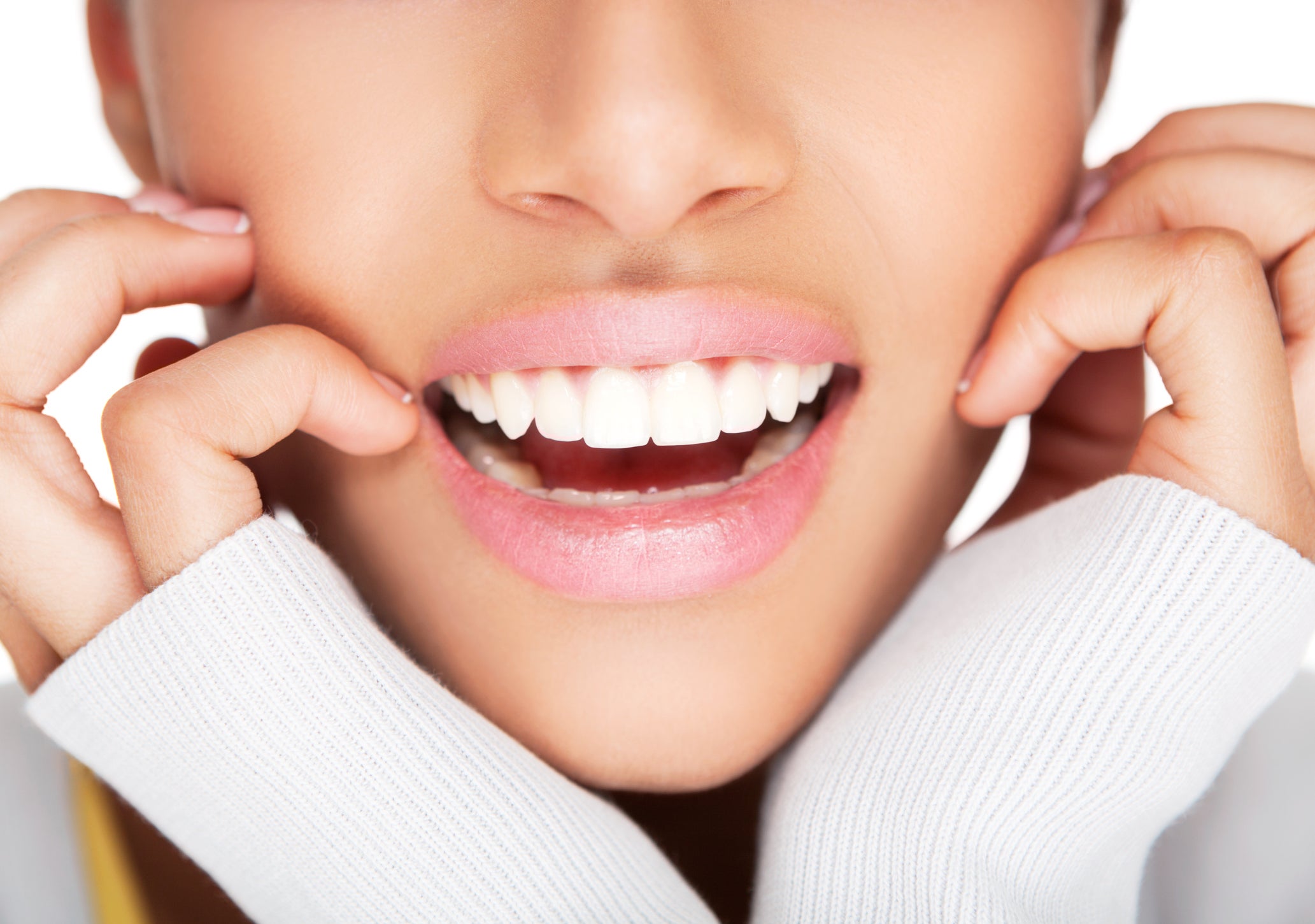
Whitening your teeth is a fast, easy way to improve the appearance of your smile. One common side effect is temporary pain and sensitivity to hot and cold drinks. We’re here to help you understand what causes teeth whitening pain and how you can prevent it.
Is Tooth Whitening Safe?
Zoom! whitening is a professional treatment that brightens your smile by an average of eight shades in a single, one-hour visit. While it’s championed as a simple, safe, and pain-free process, some patients still experience temporary hypersensitivity following treatment. If you’re concerned about this, speak with your dentist before having Zoom! whitening performed.
Why Do Teeth Sometimes Hurt After Whitening?
You are most likely to experience discomfort after whitening if you already have sensitive teeth. This is often caused by thin enamel or exposed roots. Both issues leave the underlying layer, known as dentin, vulnerable to the bleaching agent found in teeth whitening products. If the nerve endings here are irritated by the whitening process, you could be left with hypersensitivity for the next 24 to 48 hours.
How to Prevent Teeth Whitening Pain Before Treatment
- Switch to desensitizing toothpaste: One to two weeks prior to your treatment, brush with toothpaste containing 5 percent potassium nitrate to build up a resistance to sensitivity. This substance is known to reduce tooth pain, so it’s a common ingredient in desensitizing toothpaste. Brush before your treatment to clean and prepare the surface of your teeth for whitening.
- Take medicine: Immediately before your whitening appointment, take over-the-counter anti-inflammatory drugs as a proactive measure against tooth sensitivity.
- Apply ACP gel: Request relief ACP desensitizing gel from your dentist. If you have whitening trays at home, dispense a pea-sized amount into each impression and wear the tray for 30 minutes before heading to your professional Zoom! whitening treatment. If you don’t have whitening trays, apply the gel using a toothbrush.
How to Prevent Teeth Whitening Pain After Treatment
- Wait to brush: If you brush your teeth too soon after whitening, you will further expose the dentin, increasing sensitivity. Therefore, you should wait to brush for a couple of hours. When you do, brush extra gently. Use a soft-bristled toothbrush and lukewarm water to take some of the sting out of your sensitive teeth.
- Avoid hot and cold drinks: Hot coffee and ice-cold water could cause pain, so stick with room-temperature beverages for the next 24 to 48 hours. You may also find it helpful to drink through a straw so liquids bypass your teeth for the most part.
- Keep taking medicine and using ACP gel: If you continue to experience sensitivity despite your other efforts, take more anti-inflammatory drugs and reapply the ACP gel after each meal.
Park 56 Dental is proud to offer Zoom! whitening, the fast, easy way to whiten your smile. If you’re interested in scheduling treatment, or you have more questions about tooth sensitivity, please contact us online or by phone at (212) 826-2322.
-
15 Things That Cause Bad Breath

Do you suffer from bad breath, also known as halitosis? In a majority of cases, the odor stems from bacteria in your mouth. Everyone knows that eating onions and garlic can make your breath stink, but these are far from the only culprits. Learn what other things cause bad breath so you can avoid them.
- Citrus fruit: Odor-causing bacteria love acidic environments, so eating lots of citrus fruit invites bad breath to stick around.
- Pasta sauce: Tomatoes are acidic as well, meaning red pasta sauce can contribute to bad breath.
- High-protein diets: The body produces ammonia as a byproduct of breaking down protein. When the odor escapes from your mouth, it causes bad breath.
- High-sugar diets: Because of how sugar interacts with the bacteria in your mouth, eating too many sweets could result in sour breath.
- Peanut butter: Its sticky consistency makes peanut butter difficult for saliva to wash away. As it lingers, bacteria feed, making your breath stink for hours at a time.
- Canned fish: Fishy compounds tend to linger in the mouth, giving off an unsavory smell until you drink water, chew gum, or brush your teeth.
- Cheese: Most dairy products, including cheese, contain amino acids that react with bacteria in your mouth to produce excess hydrogen sulfide. The result is a mouth that smells like rotten eggs.
- Horseradish: Isothiocyanate is a sulfur-containing compound found in all cruciferous vegetables, including horseradish. Mint is the best way to combat the effects of this compound.
- Coffee: Your favorite morning beverage has a drying effect on the mouth, reducing saliva flow and allowing odor-causing bacteria to thrive.
- Alcohol: Excessive alcohol consumption causes dehydration, which can reduce saliva production. This creates a dry environment for foul-smelling bacteria to flourish.
- Tobacco: Smoking or chewing tobacco causes an unpleasant odor in the mouth. Smokers are also more likely to develop gum disease, another source of bad breath.
- Medications: Some prescriptions cause dry mouth, a known cause of halitosis. Other drugs break down in your body, releasing foul-smelling chemicals that can be carried on your breath.
- Infections: Gum disease, tooth decay, mouth sores, or surgical wounds may lead to infections that cause bad breath and an unpleasant taste in your mouth.
- Digestive issues: Chronic digestive distress, acid reflux, and bowel disorders can produce gases that cause halitosis. An inability to digest certain enzymes could also lead to bad breath.
- Poor dental hygiene: The best way to combat almost all sources of bad breath is to brush, floss, and rinse with mouthwash. By maintaining good oral health, you can combat halitosis before it starts.
If your bad breath just won’t go away, you may need help from a dentist to uncover the underlying cause. Please contact Park 56 Dental at (212) 826-2322 to work with one of the top dentists in New York. By providing a thorough dental cleaning, we can help you get rid of bad breath for good!
-
Everything You Need to Know about Mouthguards
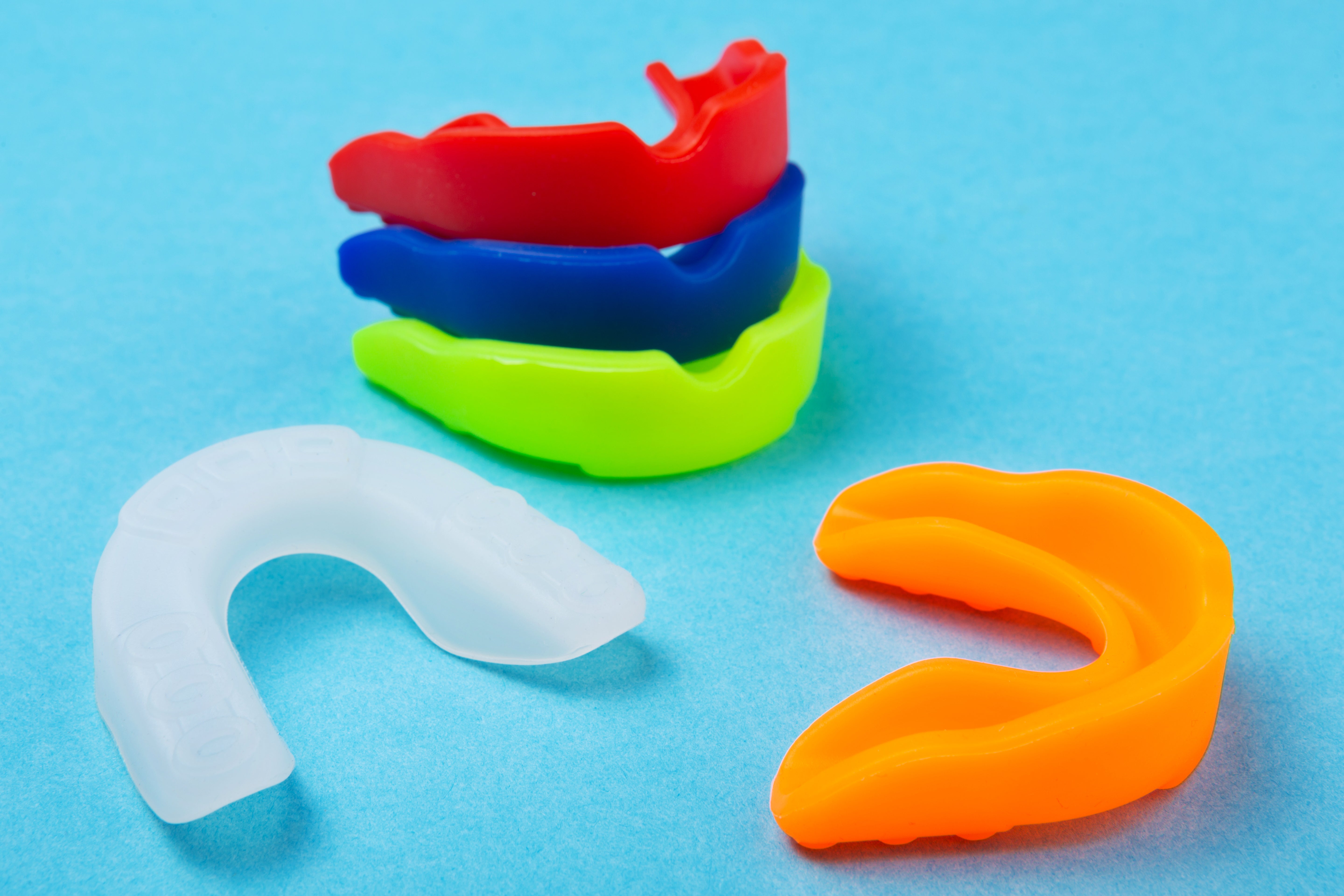
Playing sports can be risky. You could twist your ankle, sprain a wrist, bite your lip, or get a tooth knocked out. While you can’t eliminate all risks when playing sports, you can protect your teeth and lips by wearing a custom mouthguard. Learn more about your options here to help you decide what’s best for you.
What is a Mouthguard?
A mouthguard is an oral appliance designed to protect your teeth, lips, and cheeks from injury while playing sports. Similarly, night guards help prevent damage from nighttime tooth-grinding, also known as bruxism. The American Dental Association (ADA) has specific guidelines for what makes the ideal mouthguard. The appliance should:
- Sit comfortably and securely in the wearer’s mouth
- Cover all the teeth on one or both arches
- Have a resilient design and construction with materials approved by the Food and Drug Administration (FDA)
- Be easy to clean
- Maintain high-impact energy absorption and force transmittance if the wearer is playing sports
Types of Mouthguards
Not all mouthguards are created equal. There are three main types to choose from:
- Stock mouthguards come in various sizes, with most options fitting over the top teeth. This option can be bulky and uncomfortable.
- Boil-and-bite mouthguards are inexpensive options available in most drugstores. You place the mouthguard in boiling water to soften it, and then mold it to your teeth for a better fit than most stock mouthguards can provide.
- Custom-made mouthguards are the best, longest-lasting options available. A dentist makes a mouthpiece just for you, with the perfect fit and maximum comfort.
Do I Need a Mouthguard?
Mouthguards serve different purposes. You should consider getting one if any of the following applies to you:
- You play sports. The ADA recommends mouthguards to protect against chipped teeth, knocked-out teeth, and soft tissue injuries while playing full-contact sports such as hockey, football, lacrosse, and wrestling. Athletes who play non-contact sports can also benefit from wearing a mouthguard.
- You grind your teeth at night. You’ll need to wear a different kind of mouthguard, known as a night guard, to prevent tooth grinding while you sleep.
- You have jaw joint disorder. Temporomandibular Joint Disorder (TMJD) is a condition that causes the muscles around your jaw to become inflamed, leading to tooth clenching and grinding. A specially made mouthguard can help with this.
At Park 56 Dental, we help our patients protect their teeth with Under Armour® Performance Mouthwear™. These advanced mouthguards are custom-made to fit your bite for superior protection and comfort. Under Armour mouthpieces are made from the highest quality materials for safety and durability. Athletes who play sports in college, professional leagues, and the Olympics put their trust in Under Armour, and so can you.
If you’re an athlete looking for the best teeth and mouth protection available, please call Park 56 Dental at (212) 826-2322 or schedule an appointment online today. We offer quick, custom mouthguard fittings that take as little as 20 minutes.
RECENT POSTS
categories
- Uncategorized
- Cosmetic Dentistry
- Veneers
- Healthier Teeth
- Teeth Whitening
- Dental Health
- Video
- Dental Emergencies
- Invisalign
- Dental Implants
- Root Canal
- Sedation Dentistry
- Infographic
- Dental Crowns and Bridges
- Dental Anxiety
- Gum Disease
- COVID-19
- Bad Breath
- New York Dentist
- Cut out sugar
- General Dentistry
- Oral Health
- Oral Cancer
- Dry Mouth
- Gum Health
- Toothache
- Dental Sealants
- Cavities



